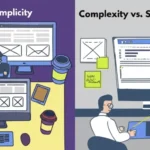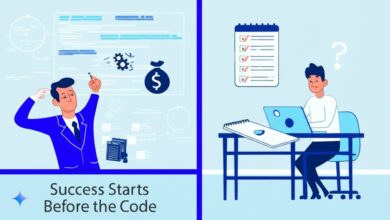
What if I told you becoming an AI agent developer doesn’t require you to be a coding wizard?
Key Takeaways:
- You can build AI agents without being a coding expert
- No-code tools are powerful alternatives to traditional coding
- Hybrid skills provide the most flexibility in the AI development market
The Great Divide: Coding vs. No-Code Solutions
As someone who’s navigated the treacherous waters of SaaS startups, I’ve learned one crucial lesson: success isn’t about knowing every programming language, but understanding how to solve problems efficiently.
Understanding the Landscape
The AI agent development world breaks down into three primary approaches:
- Traditional Coding: Writing Python scripts from scratch
- No-Code Platforms: Using tools like n8n for rapid development
- AI-Assisted Coding: Leveraging platforms like CursorAI to generate code
The Three Pillars of AI Agent Development
1. Traditional Coding: The Deep Dive Approach
What is Traditional Coding?
Traditional coding involves writing scripts and applications from scratch, giving you maximum control and flexibility. Python stands out as the primary language for AI agent development.
Platforms and Tools for Traditional Coding
- Python Frameworks
- Django: Web application framework
- Flask: Lightweight web development
- FastAPI: High-performance API creation
- Langchain: AI agent development library
Real-World Case Study: Uber’s AI Routing System
Uber developed a complex AI routing system using custom Python code, demonstrating the power of traditional coding. Their algorithm processes millions of data points in real-time, optimizing ride-sharing routes with unprecedented accuracy.
Pros of Traditional Coding
- Complete control over functionality
- Deepest level of customization
- No platform limitations
- Enhanced performance for complex systems
Cons of Traditional Coding
- Steeper learning curve
- More time-consuming
- Requires significant technical expertise
- Higher initial development cost
2. No-Code Platforms: Democratizing AI Agent Creation
Understanding No-Code Development
No-code platforms enable users to build complex workflows and applications without writing a single line of code. These tools use visual interfaces and drag-and-drop components.
Top No-Code Platforms for AI Agents
- n8n
- Open-source workflow automation
- Supports multiple integrations
- Ideal for connecting different services
- Zapier
- Extensive integration capabilities
- User-friendly interface
- Quick automation setup
- Make (Integromat)
- Visual workflow builder
- Advanced scenario management
- Supports complex logic and routing
Case Study: Mailchimp’s Marketing Automation
Mailchimp leveraged no-code tools to create sophisticated marketing automation workflows, enabling small businesses to implement complex marketing strategies without coding knowledge.
Pros of No-Code Platforms
- Rapid development
- Lower technical barriers
- Cost-effective
- Easy maintenance
Cons of No-Code Platforms
- Limited customization
- Performance constraints
- Potential vendor lock-in
- Less granular control
3. AI-Assisted Coding: The Hybrid Approach
What is AI-Assisted Coding?
AI-assisted coding platforms use artificial intelligence to generate, complete, and explain code, bridging the gap between traditional coding and no-code solutions.
Leading AI Coding Assistants
- CursorAI
- Built-in AI coding assistant
- Generates complete code snippets
- Supports multiple programming languages
- GitHub Copilot
- AI-powered code completion
- Integrated with multiple IDEs
- Learns from vast code repositories
- Replit
- Online IDE with AI coding assistance
- Supports collaborative coding
- Instant deployment capabilities
Case Study: Spotify’s Recommendation Engine
Spotify used AI-assisted coding tools to accelerate the development of their sophisticated recommendation algorithm, reducing development time by 40%.
Pros of AI-Assisted Coding
- Faster development
- Learning opportunity
- Reduced coding errors
- Supports skill enhancement
Cons of AI-Assisted Coding
- Potential inaccuracies
- Overdependence risks
- Requires basic coding understanding
- Ethical considerations
Choosing Your Development Path
Skill-Based Recommendation Matrix
| Skill Level | Recommended Approach | Tools to Explore |
|---|---|---|
| Beginner | No-Code Platforms | n8n, Zapier, Make |
| Intermediate | AI-Assisted Coding | CursorAI, GitHub Copilot |
| Advanced | Traditional Coding | Python, Django, Langchain |
Industry Insights and Market Trends
Market Projections
- Gartner predicts 65% of application development will use low-code/no-code platforms by 2024
- McKinsey reports 30% faster time-to-market for flexible development approaches
- IDC forecasts global no-code/low-code market to reach $21.2 billion by 2026
Financial Considerations
Potential Earnings for AI Agent Developers
- Entry-level: $50,000 – $75,000 annually
- Mid-level: $85,000 – $120,000 annually
- Senior-level: $130,000 – $200,000+ annually
Learning Resources
Recommended Learning Paths
- Online Courses
- Coursera: AI and Machine Learning Specializations
- Udacity: AI Programming Nanodegree
- edX: Professional Certificate in AI Development
- Free Resources
- GitHub repositories
- YouTube tutorials
- OpenAI documentation
- Community forums
Final Thoughts: Your AI Agent Development Journey
The path to becoming an AI agent developer is not about choosing one approach, but mastering multiple strategies. Embrace curiosity, remain adaptable, and never stop learning.
References
[^1]: Gartner Research, “Future of Application Development,” 2023 [^2]: McKinsey & Company, “Digital Transformation Insights,” 2023 [^3]: IDC Market Research, “Low-Code/No-Code Market Forecast,” 2024 [^4]: Forbes Technology Council, “AI Development Strategies,” 2023Take Your First Step
Start exploring, experiment with different platforms, and remember: every expert was once a beginner. Your AI agent development adventure begins now!






